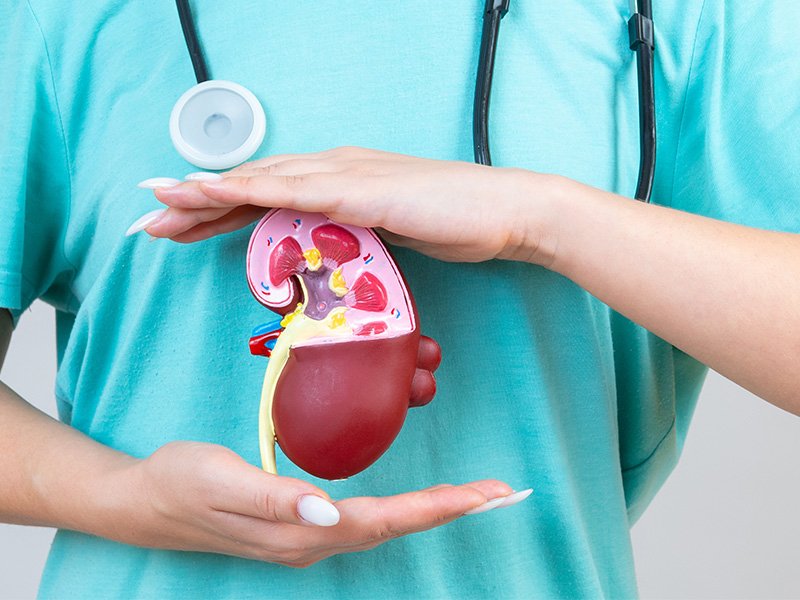What are Urinary Tract Infections?
UTIs, also known as urinary tract infections, are major kinds of infections more frequently suffered by those with short urethras, cisgender women, and transgender women who have undergone vaginoplasty or gender-change surgery. Most often, antibiotics are used to swiftly and successfully treat UTIs. Unfortunately, not all UTIs are treated right once, and some aren’t even recognized, especially in those with impaired speech or minimal or no sensation below the waist.
Urinary tract infections left untreated may go to the kidney, worsening their pain and health. The sepsis brought on by a UTI is referred to as urosepsis. Sepsis may potentially result from it.
Sepsis is a medical emergency requiring prompt diagnosis and treatment, like heart attacks or strokes. The body’s life-threatening response to infection or damage is sepsis, which is occasionally wrongly referred to as blood poisoning. People shouldn’t pass away from a UTI, but this is what might happen if sepsis takes hold and progresses to severe sepsis and eventually septic shock. More than half of cases of urosepsis in older persons are brought on by UTIs.
Any infection in the body, such as pneumonia, the flu, or urinary tract infections, can lead to sepsis and septic shock. Sepsis is a medical emergency requiring prompt diagnosis and treatment, like heart attacks or strokes. Sepsis causes one-third of patients to pass away globally. Amputations, post-traumatic stress disorder (PTSD), chronic pain, exhaustion, organ dysfunction (organs don’t work correctly), and chronic pain are a few life-altering impacts many survivors experiences.
What are the signs and symptoms of a UTI?
UTIs come in two main varieties. Cystitis is the most typical. When the bladder or urethra are infected, it happens. When a child gets cystitis, they may:
- Feel feverish (this may be the only symptom in babies).
- Be picky (common in babies).
- Vomit (common in babies & older children).
- Constantly go to the washroom (more common in older children).
- Wet themselves despite having completed toilet training.
- Experience burning or pain when urinating (more common in older children).
- Experience lower back or stomachache.
- Urine contains blood.
The kidney infection known as pyelonephritis, which is less frequent, is a kind of UTI. Pyelonephritis can occasionally be managed at home, but it can sometimes progress to a critical and even fatal stage. Among the symptoms of pyelonephritis in children:
- A temperature of 101 or higher for fever.
- Flu-like signs include shivering, chills, nausea, vomiting, or aches.
- Aches in the side, back, stomach, or groin.
- Urination that makes you feel pain.
- Urine that is red, murky, smells bad or becomes a dark cola color.
- Blood or pus in the urine.
- Frequent or hurried urination.
Call any pediatrician if your child exhibits signs of cystitis or pyelonephritis. Immediate action is a must for children with UTIs!
When to see a doctor?
If you experience any signs of a urinary infection or worrying symptoms, go to your primary care physician. The doctor can suggest that you see a urologist depending on the severity of your problems. Most UTIs can be treated at home with antibiotics that a doctor prescribes. A few severe instances, however, can necessitate hospitalization.
Diagnosis of Urinary tract infection by Dr. Ravi Bhandania
Dr. Ravi Bhandania suggests the following diagnostic procedures to find a urinary tract infection.
Urinalysis or urine test: The urine test will look for any infections in the urine sample.
Urine culture: Dr. Ravi Bhandania recommend the following tests to look for sickness in the urinary tract system if the UTI does not respond to treatment or if it recurs frequently.
- CT scan.
- ultrasound
At Alfa Kidney Care Hospital, we work with the most trustworthy medical professionals, including urologists and family practitioners, who design a unique treatment pathway for each patient. Our most esteemed nephrologist, Dr. Ravi Bhadania, supports a multidisciplinary strategy for treating urinary tract infections that have become serious or have spread to other organs. However, our therapy strategy precisely tackles this issue and achieves the finest outcomes, assuring sustained healing. Our goal is to deliver the best treatment results and pleasing patient experiences at a very reasonable price!
